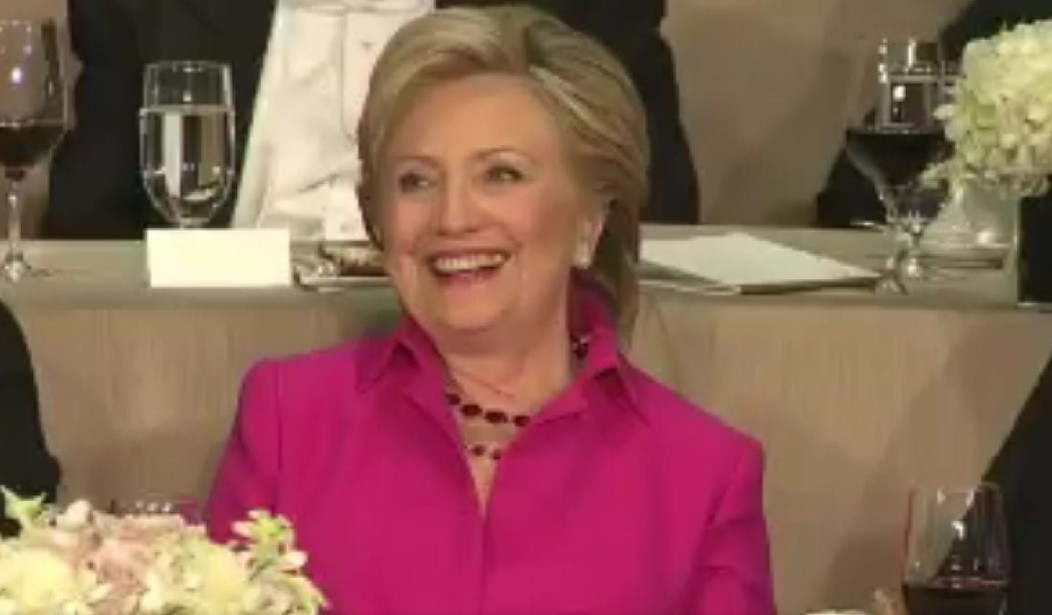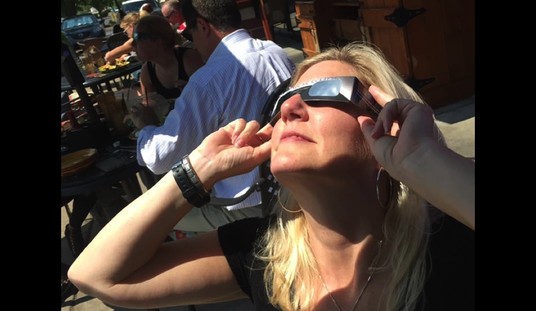There is new information that Russian cash funneled to the Clintons helped secure a key deal for a corrupt Russian-owned nuclear company. Sara Carter:
An informant who spent years gathering information on the Russian energy and uranium market industry for the FBI, met staff members of the Senate Judiciary Committee, House Oversight, and House Intelligence Committees on Wednesday. He gave explosive testimony on his years as an undercover informant providing information to the FBI on Russian criminal networks operating in the United States. He also contends in his testimony, and written briefs, to the FBI that Russia attempted to hide its ongoing aid to help sustain Iran’s nuclear industry, at the time the Obama administration approved the sale of 20 percent of U.S. uranium mining rights to Russia.
The informant, William D. Campbell, is represented by that perennial TV talking head Victoria Toensing, who had this to say about his appearance yesterday:
Mr. Campbell testified for over four hours until he answered every question from three Congressional committees; the Senate Judiciary, House Oversight and House Intelligence committees.
He recounted numerous times that the Russians bragged that the Clintons’ influence in the Obama administration would ensure CIFIUS approval for Uranium One. And he was right.
A quick refresher is in order on the amounts of money we’re talking about here. Recall that the New York Times, piggybacking off Peter Schweizer’s then-upcoming book, reported in 2015 on the Russian cash money that went to Billary — not just their foundation, either, but directly into Billy Boy’s pocket:
As the Russians gradually assumed control of Uranium One in three separate transactions from 2009 to 2013, Canadian records show, a flow of cash made its way to the Clinton Foundation. Uranium One’s chairman used his family foundation to make four donations totaling $2.35 million. Those contributions were not publicly disclosed by the Clintons, despite an agreement Mrs. Clinton had struck with the Obama White House to publicly identify all donors. Other people with ties to the company made donations as well.
And shortly after the Russians announced their intention to acquire a majority stake in Uranium One, Mr. Clinton received $500,000 for a Moscow speech from a Russian investment bank with links to the Kremlin that was promoting Uranium One stock.
This is rank corruption. Hillary fans have defended the Uranium One deal by arguing that Hillary had little to nothing to do with the decision. It was made by a committee, they remind us — and the State Department was only one member. What’s more, there’s no proof of Hillary’s direct involvement, we are told. Well, Campbell’s testimony (as related by Toensing) shows that, from the Russians’ point of view, Hillary was anything but irrelevant to the process.
And guess who else felt that politics played a role? FBI agents. Remember that the deal was approved despite the fact that the major Russian players were under FBI investigation, and the fact that there existed (as the Hill put it in October) “substantial evidence that Russian nuclear industry officials were engaged in bribery, kickbacks, extortion and money laundering.” Campbell was furious about this, given what he had uncovered, and confronted his FBI handlers about it. Guess what they said? Forget it, Jake. It’s Swamptown:
“I was speechless and angry in October 2010 when CFIUS approved the Uranium One sale to Rosatom. I was deeply worried that TLI continued to transport sensitive uranium despite the fact that it had been compromised by the bribery scheme,” stated Campbell in his testimony to lawmakers. “I expressed these concerns repeatedly to my FBI handlers. The response I got was that “politics” was somehow involved. I remember one response I got from an agent when I asked how it was possible CFIUS would approve the Uranium One sale when the FBI could prove Rosatom was engaged in criminal conduct. His answer: “Ask your politics.”
The icing on the cake, as noted in Carter’s opening paragraph: during this whole time, Russia was helping Iran with its nucelar program.
Carter’s whole post makes for fascinating reading. I recommend reading it all. To be honest, I’d like to see more than the word of Victoria Toensing before I make any final pronouncements. But Carter’s post sends the signal that the last shoe has not yet dropped.
All of this is another reminder that one of the more corrupt individuals in American political history had a real shot at occupying the Oval Office. Unfortunately, the person who defeated her has built up his own track record of allowing foreign interests to put money into his pocket. Trump promised from the beginning that he would return foreign government payments to his hotel and other entities, but a year later there is no proof that he has — and it’s very unlikely he will provide said proof, since the Trump Organization is not even keeping track of that money. And rank partisanship has Hillary haters accepting this as inevitable and not remotely problematic. This means that no matter who won in 2016, a precedent was going to be set that foreign interests can bribe the President . . . and ultimately, there will be no accountability for it.
We had no good choice in 2016. Even with some policy upsides — and there have been plenty –we are reminded almost daily of the downsides of electing a cretin like Trump. Every so often, then, it’s helpful to be reminded as well that the alternative was a lifelong corruptocrat.













Join the conversation as a VIP Member